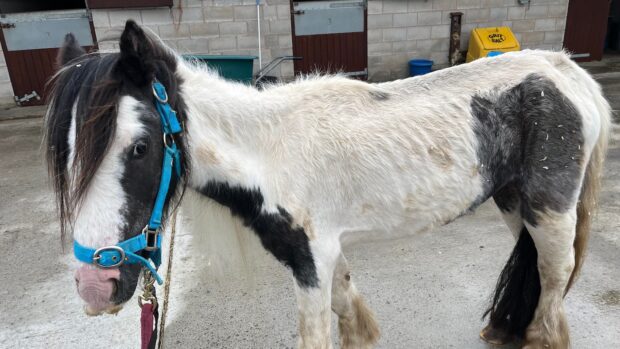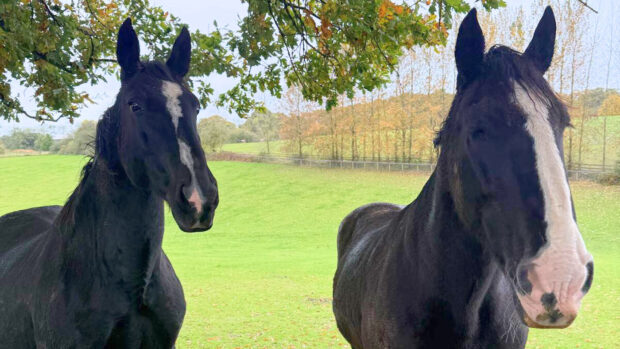Understanding when horses are expressing positive behaviour is just as important as recognising the negatives when assessing quality of life, researchers have highlighted.
Students from Hartpury University, University Centre Askham Bryan and University Centre Sparsholt took part in an Advancing Equine Scientific Excellence (AESE) project to understand how equine quality of life was perceived, and how it can be measured. AESE is a collaborative initiative between industry, research institutes, colleges and universities which aims to promote excellence in equine research. The work, supported by World Horse Welfare and the Horse Trust, included reviewing literature, existing tools and frameworks, and carrying out surveys with industry stakeholders.
Key findings included that quality of life should be considered throughout horses’ lives, not just when making end-of-life decisions, and there is a need to consider both positive and negative experiences. It was highlighted there is a need for “collaborative working” to ensure that owners are considered during the research stages, when developing quality-of-life tools.
AESE study coordinator Georgina Crossman told H&H it is hoped that following this work a new simple tool for assessing quality of life can be created that supports “happy horses” and does not just focus on “the bad stuff”.
“It’s not just about saying the horse isn’t eating properly or is losing weight,” she said. “Positive affective states should not be underestimated – it’s about looking at the happier aspects of a horse’s behaviour and considering what they would do naturally, such as are they playing and rolling?
“Owners know their horses, but if they haven’t taken some baseline benchmarks of what they do normally, then when they are off, how quickly do they notice? It can be anything from knowing they lie down at a certain time of the day or they do certain things with their friends. Owners want to do the best for their horses; understanding more about how we can give them a positive quality of life is really key to making sure that they are happy horses. At the end of the day if the horse is happy, you’re going to have a better relationship.”
World Horse Welfare head of welfare Sam Chubbock added that traditionally people tend to think of quality of life only when making end-of-life decisions.
“We need to think about what we can do to improve a horse’s experience now, and how a particular management style is affecting them. Is it having a positive or negative impact, and how do we measure this?”, she said, adding that World Horse Welfare and the Horse Trust will now work towards developing the new quality of life tool, with the aim of making it practical for owners to use.
“One of the key findings about current tools is they’re either quite specific or not known about, so there need to be discussions with owners and other stakeholders to make sure we’re getting the tool right. We don’t know yet what it’s going to be and don’t want to have predetermined ideas, but this project has provided a baseline of what we need to consider. There is a bit of a gap between what’s going on in the research industry and what actually filters down to owners, so this is about closing the gap.”
British Equine Veterinary Association chief executive David Mountford said the project gave further helpful insights into quality-of-life measurements for horses.
“While vets and owners have quality-of-life discussions most often towards the end of a horse’s life, the questions apply equally throughout an animal’s lifetime and this project highlights that fact alongside the benefit of assessing both positive and negative factors,” he said.
“Many of us feel we intuitively ‘know’ whether or not a horse is enjoying a good quality of life; nonetheless, if we are to retain a social licence, we should keep striving for improved objective quality-of-life tools, and we should also ensure that some of those tools can be easily used by owners rather than being the preserve of academics.”
You might also be interested in:

‘Environmental stewards of our countryside’: research highlights positive impact alternative grazing systems can have

Better owner understanding needed of undesirable equine behaviours

Subscribe to Horse & Hound magazine today – and enjoy unlimited website access all year round
Horse & Hound magazine, out every Thursday, is packed with all the latest news and reports, as well as interviews, specials, nostalgia, vet and training advice. Find how you can enjoy the magazine delivered to your door every week, plus options to upgrade your subscription to access our online service that brings you breaking news and reports as well as other benefits.





